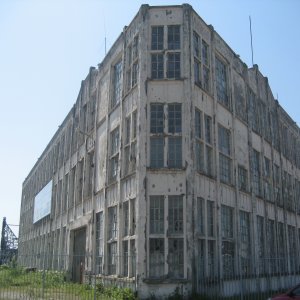#4 The nitrogen-debate: Opinion of a student
Using the court to bypass democracy
It has been a couple of months since the Dutch Council of State spoke her verdict on the Nitrogen lawsuit filed by the environmental organizations ‘Mobilization For the Environment’ and ‘Werkgroep Behoud De Peel.’ In this verdict, the Council stated that the Dutch Programma Aanpak Stikstof (PAS) is not in line with European laws, with the result that all building permits provided on behalf of that PAS are unlawful. This, combined with statements made by left green politicians like De Groot (D66) and Klaver (GroenLinks), has led to a state of crisis in the Netherlands.
In the period up to the crisis, there is one part of the process in particular that has intrigued me very much. The two environmental organizations chose not to convince representatives in parliament of their cause, but instead decided to sue the state. Recent history however, does show that democratic tools i.e., the citizens’ initiative, can be very effective measures to start discussion in our parliamentary system. Therefore, I did a small scale analysis of the direct advantages and disadvantages of the verdict for Dutch citizens to find an explanation for this choice.
Like LLM. Ton van Hoof describes in his contribution to this series; the verdict of the Council of State has two main advantages. Due to a reduction of nitrogen composites in the soil, the growth of nitrogen non-sensitive species like the birch, nettle, sail, and bramble decreases. This allows indigenous species like the heather and Sphagnum to grow, and the possible threat of contamination of our drinking water with aluminum-toxicity is decreased; Especially, the latter has a direct influence on the healthy persistence of the Dutch and should, therefore, be taken seriously. The verdict does, however, have several major disadvantages opposing the advantages, which also have a direct influence on the basic needs of people.
It is commonly known that the population of the Netherlands is growing and that, simultaneously, household sizes are shrinking. This resulted in a total housing shortage of 263,000 dwellings (3.4% of the Dutch housing stock) in 2019. To solve this shortage, an extra twenty to forty thousand dwellings should be constructed on top of the 75,000 dwellings that already need to be constructed each year. (Capital Value B.V., 2019) The construction impasse that is caused by a combination of the nitrogen- and PFAS problems will only contribute to a deterioration of the condition of the Dutch housing stock.
The provision of housing is, however, not the only aspect of our welfare state that will be affected. ABN AMRO estimated the economic growth of the nation in 2020 on 1.2%, but adjusted this to 0.9% shortly after the first effects of the nitrogen verdict became visible. Even though this number might not seem like a lot, a simple calculation tells otherwise. If the total income items of the governmental budget that have a direct correlation with economic growth are summed and multiplied with the two percentages of economic growth; it can be concluded that the Dutch state will receive 0.6 billion euros less in taxes in 2020 due to the verdict. This in itself is almost half of last year’s actual expenses on the item Agriculture, Nature, and Food quality. If we compare the 0.9% economic growth with the expected inflation value of 1.4% (CPB, 2019), we can conclude that the Dutch state can invest significantly less on our social services and securities, which will have an effect on the affordability of our primary and secondary needs of life.
Now that the advantages and disadvantages can be compared, it becomes visible that the initiators of the lawsuit against the state could have never convinced enough people to change policy in a democratically correct manner. Which does explain their choice for a lawsuit. But because the social-cultural size of the consequences of a verdict like this could definitely have been predicted beforehand, I strongly feel this problem should have been solved politically. Because of that, I can come to no other conclusion than that the parties that incited the lawsuit acted unethically by undermining our democratic system.
Literature:
Capital Value B.V. (2019, February 11). Woningtekort loopt op naar 263.000 woningen. Retrieved January 19, 2020, from https://www.capitalvalue.nl/nieuws/woningtekort-loopt-op-naar- 263-000-woningen
CPB. (2019). Juniraming 2019. Retrieved from https://www.cpb.nl/sites/default/files/omnidownload/cpb-policy-brief-2019-kmev2020.pdf
Klene, N. (2019). Visie op Nederland 2020 - groei economie onder druk. Retrieved from https://insights.abnamro.nl/download/141005/
Rijksoverheid. (2019). Inkomsten en Uitgaven Rijksoverheid 2020. Retrieved from https://www.rijksoverheid.nl/onderwerpen/prinsjesdag/inkomsten-en-uitgaven-van-het-rijk- 2020




